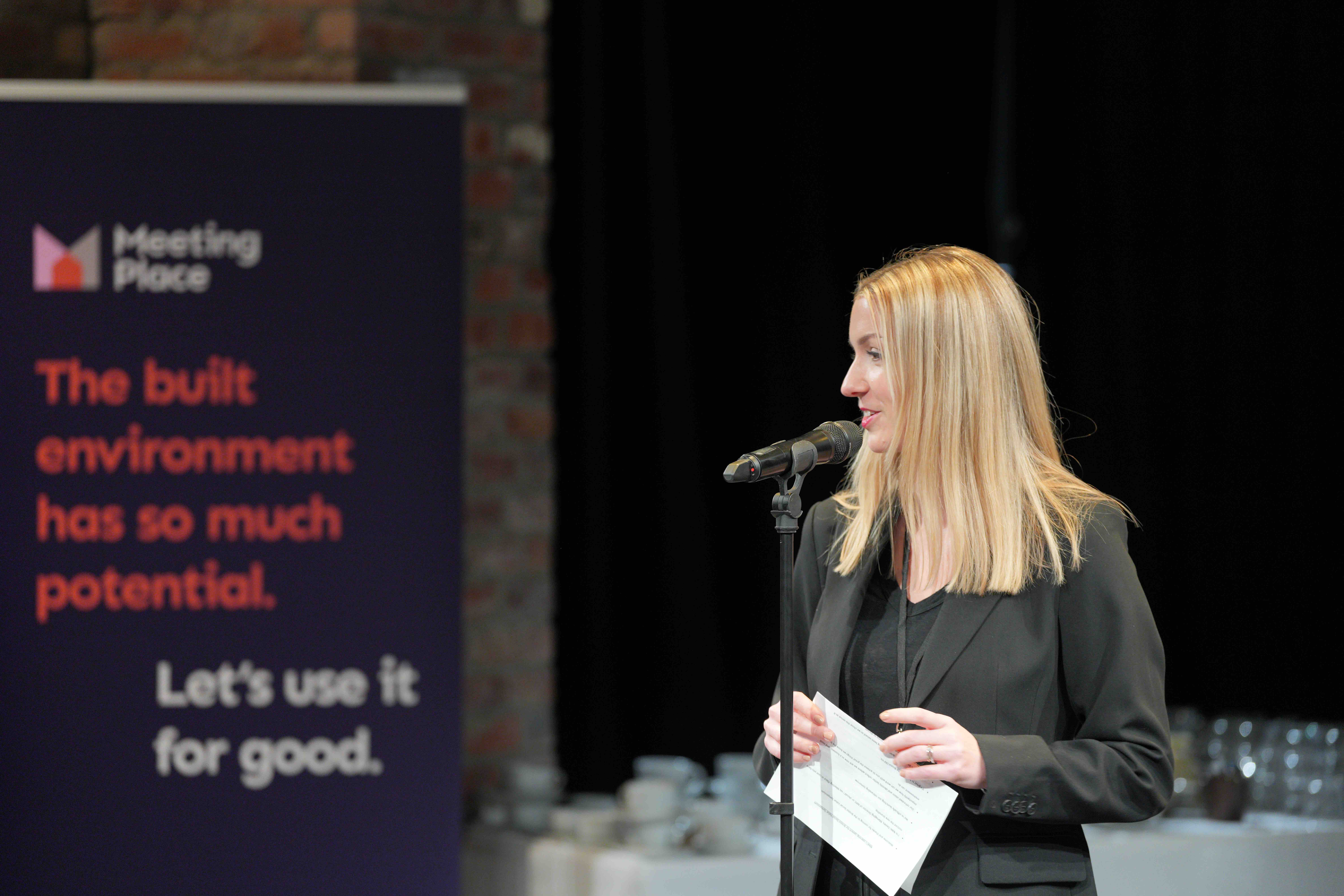Built environment industry calls for intervention on social value
Industry calls for intervention to 'level the playing field' on social value
Public, private and third-sector leaders call for five key improvements to unlock built environment’s potential
An event bringing together private, public and third-sector leaders across the built environment has called on the government to be bolder when it comes to social value, if we are to unlock the potential it can deliver for communities across the UK.
Published today by comms agency Meeting Place, the Unlocking the potential of social value report puts forward insight gathered at the recent symposium. It outlines five key recommendations which the industry must work towards, if it is to maximise social value - the impact an organisation contributes to wider society, beyond the profit it generates.
The news follows new research from Scape, which highlights the construction industry delivered a record-breaking £1.1bn of social and local economic value in the first half of 2022, equating to a 30% return on investment, up from 20% the previous year.
Although a substantial increase, delegates at Meeting Place’s Social Value Symposium identified real issues in parity when it comes to best practice within the sector and believe more can be done.
The figure contrasts with the total output of the UK construction industry, which delivers £110bn annually (7% of GDP).
The event’s partner organisations - Places for People, Socius and BoKlok - brought together decades of best practice expertise in their field to help shape the narrative, understanding and recommendations. The symposium highlighted five key areas where intervention and improvement will prove key in redressing the imbalance:
1. More powers and accountability – Delegates felt the Social Value Act (2012) ‘lacks teeth’, with take- up in recent years piecemeal at best.
2. Greater flexibility – Moving beyond pure compliance to proactively communicate and engage throughout the whole process – constantly evaluating, refining and developing the offer to the community.
3. Greater collaboration across public and private sectors – Delegates noted inconsistencies between local authorities across the country when it comes to their approach and understanding of social value. Local authorities should take Bristol City Council’s lead by creating an impactful social value framework for developers to follow and align to.
4. Avoiding the ‘parachute’ – Interventions which are meaningful and deliver in the long term are too often absent from conversations about social value. Delegates suggested more should be done to understand what communities tangibly want and need, with a lack of consistency identified when it comes to community involvement.
5. Qualitative and quantitative - Businesses which invest efforts in collating accurate data and metrics to evidence their positive impact will be best placed to tackle virtue signalling criticisms head-on.
Nikki Davies, Meeting Place’s Managing Director, said: “Social impact is evolving into a litmus test for how businesses should operate in the UK. It has certainly come a long way since the Social Value Act in 2012, but there is now a real appetite and need for the industry to level up with businesses that are leading the charge.
“As a result, we are calling on the government and local authorities to be bolder in their ambitions, if we are to see improvements and level the playing field. Although it is already embedded in the procurement process, we want to see social value becoming an integral, legally binding part of the planning process, rather than something to “consider”, as has previously been the case.
“Government intervention and stewardship will be key, along with greater devolved powers for local authorities. We also need a stronger and swifter culture shift within certain parts of the private sector – moving away from a fixation on profits and bonuses, to align with those who maximise benefits for people, places and the planet.”
Liam Ronan-Chlond, Head of Engagement & Social Value at Socius explains: “Social value is a mindset, it’s about committing to making a long-term investment and creating a more positive future. Socius has made social value the responsibility of the entire company, and beyond that, we even look at our supply chain, encouraging the organisations that we work with to ‘do more good’.
“Our ambitions are fully aligned with Meeting Place and its Social Value Symposium whitepaper and we support its call on the government and local authorities to put greater emphasis on social impact.”
For more information on Meeting Place and to read the Social Value Symposium whitepaper, please visit: https://meeting-place.uk/insights/news/our-call-to-government-to-level-the-playing-field-on-social-value/
Featured articles and news
Gregor Harvie argues that AI is state-sanctioned theft of IP.
Preserving, waterproofing and decorating buildings.
Many resources for visitors aswell as new features for members.
Using technology to empower communities
The Community data platform; capturing the DNA of a place and fostering participation, for better design.
Heat pump and wind turbine sound calculations for PDRs
MCS publish updated sound calculation standards for permitted development installations.
Homes England creates largest housing-led site in the North
Successful, 34 hectare land acquisition with the residential allocation now completed.
Scottish apprenticeship training proposals
General support although better accountability and transparency is sought.
The history of building regulations
A story of belated action in response to crisis.
Moisture, fire safety and emerging trends in living walls
How wet is your wall?
Current policy explained and newly published consultation by the UK and Welsh Governments.
British architecture 1919–39. Book review.
Conservation of listed prefabs in Moseley.
Energy industry calls for urgent reform.
Heritage staff wellbeing at work survey.
A five minute introduction.
50th Golden anniversary ECA Edmundson apprentice award
Showcasing the very best electrotechnical and engineering services for half a century.
Welsh government consults on HRBs and reg changes
Seeking feedback on a new regulatory regime and a broad range of issues.
























